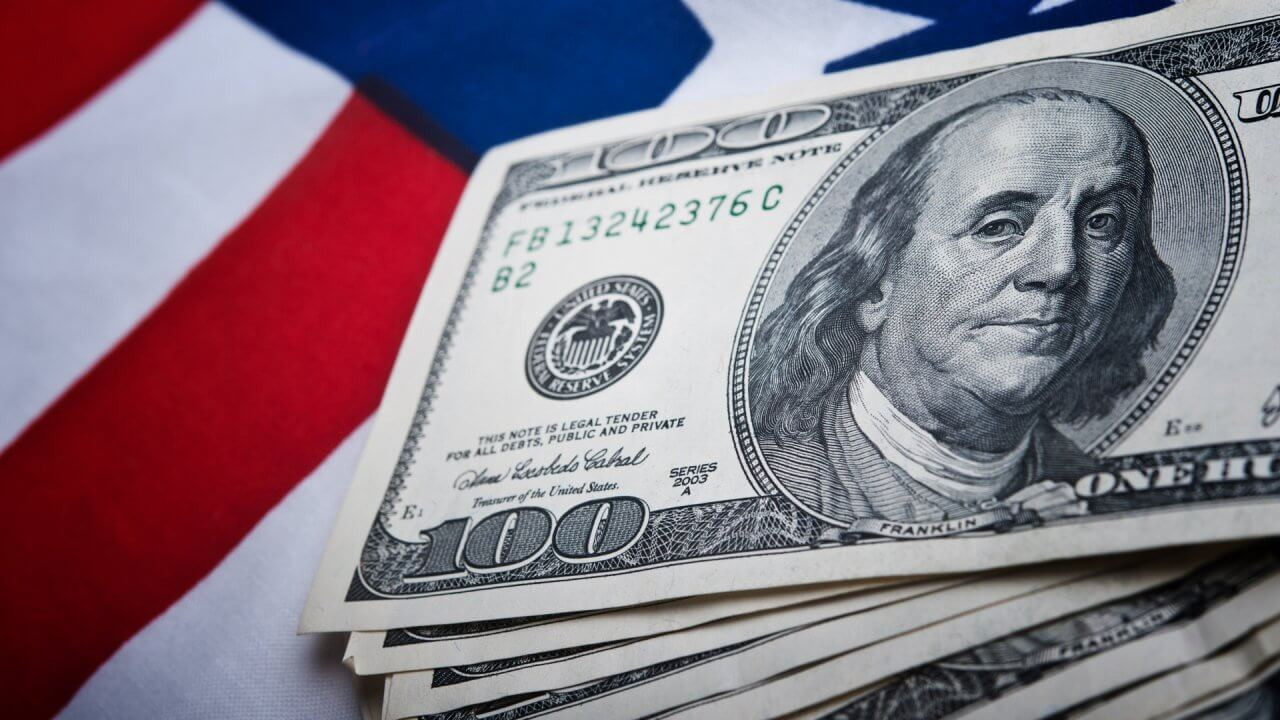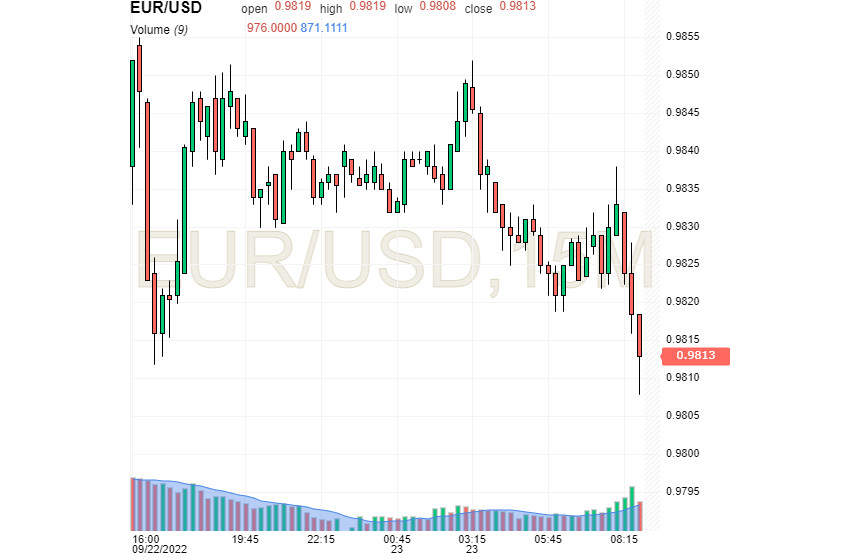
The actions of the Federal Reserve related to the increase in the interest rate by 75 bps, as expected, helped the US currency. However, the European rival for the EUR/USD pair was out of work again and showed a decline
The Fed's decision to raise the interest rate by 75 bps, to 3-3.25% per annum, provoked a wave of revision of market expectations. At the same time, economic forecasts for the coming year have deteriorated significantly. According to analysts, these factors contribute to the dollar's growth, fueling its long rally. On the morning of Friday, September 23, the US and European currencies once again fought for leadership in the pair. At the same time, the EUR/USD pair was near the 0.9813 mark, trying to overcome the attraction of the downward spiral.

According to the Fed representatives, the expensive USD and the cooling of the credit market amid high rates contribute to curbing inflation and its return to the 2% target. Yesterday's meeting demonstrated that the central bank is not ready to turn off the chosen path and will continue the course of tightening the monetary policy.
In addition to raising the key rate, the Fed lowered US GDP forecasts and raised estimates of inflation and unemployment for 2022-2023 (to 3.8% from the previous 3.7% and to 4.4% from 3.9%, respectively). At a press conference following the meeting, Fed Chairman Jerome Powell stressed that the victory over inflation "will not be painless." According to economists, Powell's statements are obscure evidence of a high probability of a recession. Experts pay special attention to the forecast of the unemployment rate: we recall that with an increase in the rate by 0.50 percentage points over several months, the risk of a recession increases.
Previously, Powell noted that the central bank allows a further increase in the discount rate by 125 bps until the end of 2022. Recall that the Fed raised the rate in response to record inflation, which reached the highest level in the last 40 years. Currently, the forecast for the key rate for the end of 2022 has been raised to 4.4%, which is much higher than the June figure of 3.4%. The US central bank expects to raise the rate to 4.6% by the end of 2023, before announcing its reduction in 2024-2025.
The current situation puts serious pressure on the euro. As a result, the euro sags endlessly, briefly rising and again showing a decline. Preliminary data on business activity in the eurozone is set to be published on Friday, September 23. According to analysts, the composite PMI business activity index in the EU industry and services sector fell to 48.2 points in September from the previous 48.9 points.
In the current situation, the dollar was the winner, having received strong support from the Fed. According to experts, the USD will continue to strengthen in the near future. At the same time, amid long-term growth of the dollar, the foreign exchange market found itself in a zone of increased volatility. According to analysts at HSBC bank, the September FOMC decision strengthened the bullish position on USD.
Against this background, experts expect the Fed to raise the rate by 75 bps in November, by 50 bps in December and another rise by 25 bps in February 2023. As a result of these measures, the target range for federal funds will increase to 4.50-4.75%. The risks for rates amid high inflation are still shifted upward. According to experts, a high peak rate has a positive effect on the dollar's dynamics. In the current situation, risk appetites in the markets are decreasing, while the demand for greenback as a safe asset is growing.
 English
English 
 Русский
Русский Bahasa Indonesia
Bahasa Indonesia Bahasa Malay
Bahasa Malay ไทย
ไทย Español
Español Deutsch
Deutsch Български
Български Français
Français Tiếng Việt
Tiếng Việt 中文
中文 বাংলা
বাংলা हिन्दी
हिन्दी Čeština
Čeština Українська
Українська Română
Română

